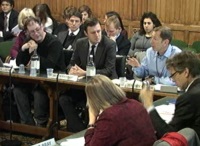The Labour Party’s proposed policy programme only mentions the digital economy once, and this is to promise more speed, everywhere it can go. There are two internal pressure group style swarms/groups/initiatives looking to do better. The first is launched by the front bench incubated if not commissioned by the impressive Chi Onawaruh MP, currently shadow spokesperson for the Cabinet Office. This has it’s home at this site, Chi publicised the initiative at in an article at Labour List called How can we make Digital Government work better for everyone?. A great deal of thought has been undertaken in launching this initiative. The second initiative is @LabourDigital, …
Policy for Labour on the Digital Economy





